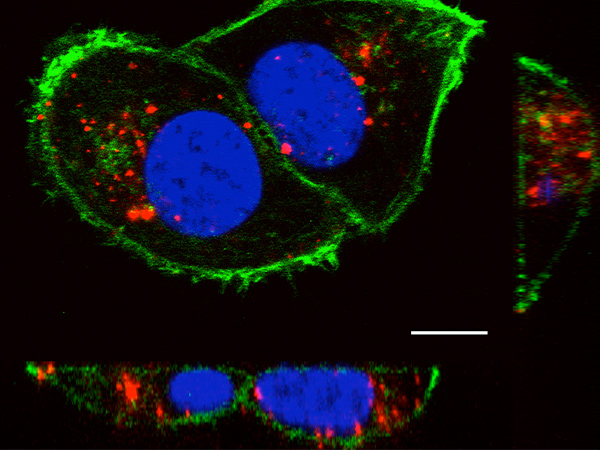Combining Immunotherapy and Targeted Therapy for Kidney Cancer
The FDA has approved a combination of pembrolizumab and axitinib for treating certain patients with renal cell carcinoma, the most common form of kidney cancer.

The U.S. Food and Drug Administration (FDA) recently approved a combination of the immunotherapeutic pembrolizumab (Keytruda) and the molecularly targeted therapeutic axitinib (Inlyta) for treating patients newly diagnosed with advanced renal cell carcinoma, which is the most common form of kidney cancer.
Kidney cancer is the eighth most commonly diagnosed cancer in the United States, according to data from the National Cancer Institute. About 90 percent of the 73,820 new cases of kidney cancer expected to be diagnosed in the United States in 2019 will be classed as renal cell carcinomas.
Many patients newly diagnosed with metastatic renal cell carcinoma are first treated with one of several FDA-approved molecularly targeted therapeutics called multi-kinase inhibitors; one of the most commonly used of these therapeutics is sunitinib (Sutent). Another is axitinib (Inlyta).
The FDA approved the combination of axitinb and pembrolizumab as a new initial treatment for advanced renal cell carcinoma based on results from the randomized, phase III KEYNOTE-426 clinical trial. The results, which were published in the New England Journal of Medicine, showed that patients who received the axitinib–pembrolizumab combination had significantly improved overall survival rates compared with those who received sunitinib. After a median follow-up of 12.8 months, the estimated 12-month survival rate was 89.9 percent for those who received the axitinib plus pembrolizumab combination compared with 78.3 percent for those who received sunitinib, which translates to a 47 percent lower risk of death. In addition, the median progression-free survival was significantly longer among those who received the combination than it was among those who received sunitinib; it was 15.1 months for the combination group versus 11.1 months for the sunitinib group.
Pembrolizumab works by releasing a brake called PD-1 on cancer-fighting immune cells called T cells. Because it targets the immune system and not molecules specific to a particular cancer, it has relatively broad utility in the treatment of cancer.
Pembrolizumab was first approved by the FDA in September 2014, for treating melanoma. Since then, it has been approved for treating 10 other types of cancer, including kidney cancer, and for treating patients with any type of solid tumor that is characterized by the presence of specific biomarkers known as microsatellite instability–high or mismatch repair–deficient.
The FDA approval was rendered on April 19, 2019.
